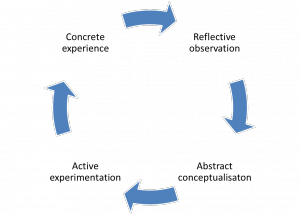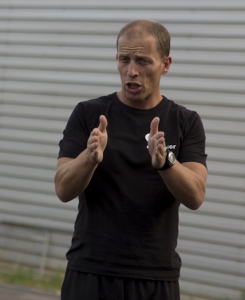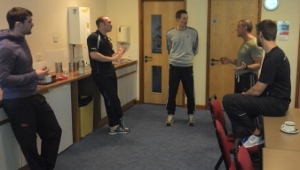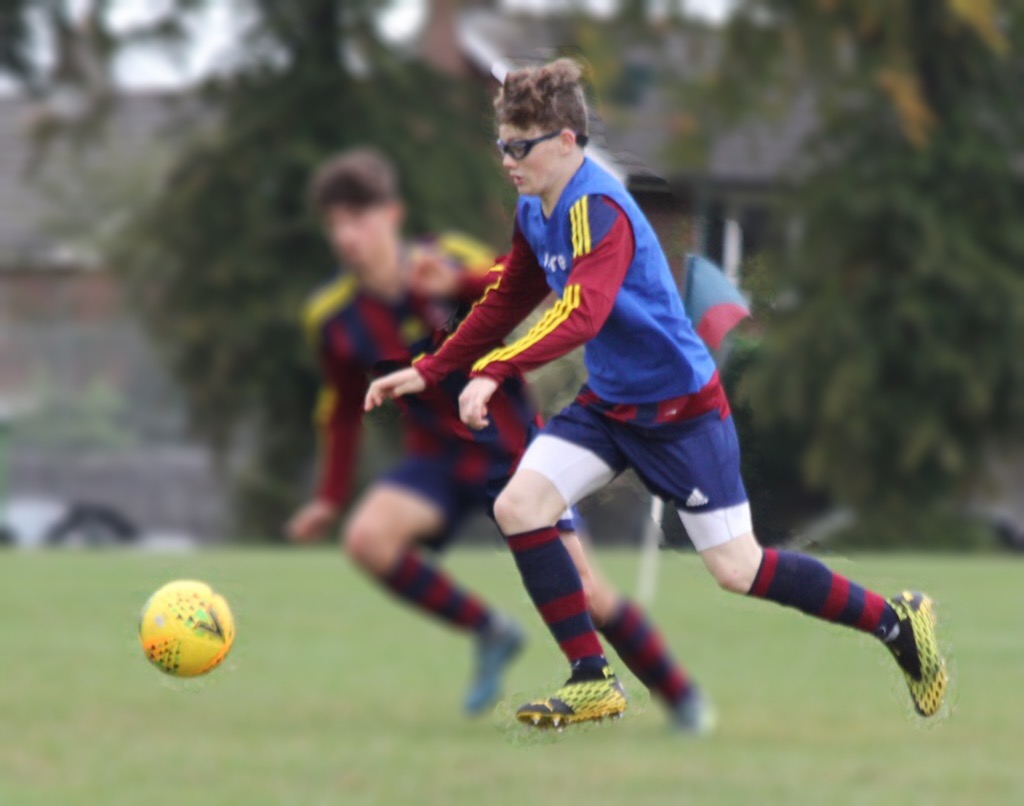Main Menu
Latest Blog Entry
User login
Coach education: the micro practice
“Learning does not happen automatically as a result of experience”
 Thompson
Thompson
Instead, we have to reflect upon the experience, relate it to some theory and then try it out again (Kolb).
However, I have been on far too many coaching workshops where you just sit and listen to some expert.
Some interesting ideas come up, but by the time you get back to your team or players you have either forgotten what it was you learnt, or you are unable to deliver the idea as well as you would like.
The Micropractice
I got this idea from Doug Lemov’s “Practice Perfect”. At the latest CPD workshop I ran for the Excelsior Community of Practice every coach got the chance to give and receive feedback on a session they delivered on Sunday.
Each coach delivered a two minute coaching session. Two other coaches observed and had to give feedback on it, each one starting with a specific phrase:
- “You did a good job of…”
- “Next time, try…”
The coach then either continued on with their session, or restarted it for another two minutes. We then repeated the process.
 At the end of the two or three sessions, the participants evaluated how well the coach implemented the feedback. As coaches we give a lot of feedback, but we are rarely assessed on how effective it is.
At the end of the two or three sessions, the participants evaluated how well the coach implemented the feedback. As coaches we give a lot of feedback, but we are rarely assessed on how effective it is.
By holding cards which had the two feedback phrases written on them, we neutralised the personal aspect of resistance to receiving feedback (of course, the type of people attending this workshop had a genuine desire to learn and improve, so it was a skewed sample).
This took about six minutes for each coach, but we had additional discussions around the format. Six minutes! Imagine if we could do this every week? How effective would that be? A continuous cycle of improvement looking at one small skill at a time.
Each coach had something tangible to take away and put into practice on Monday morning.
Coaching Pedagogy: blending science with art
 Whenever coach pedagogy is mentioned, people run for the hills! This workshop was designed to help everyone improve their practice.
Whenever coach pedagogy is mentioned, people run for the hills! This workshop was designed to help everyone improve their practice.
A lot of coaches rely on “Practice theories” which is often known as common sense.
However, an underlying theory is “Necessary to avoid assumptions, prejudices and stereotypes” (Thompson). But, this theory has to be robust and I used a recent publication on “swim sprint training” as an example of poor research and misinterpretation of data.
Each coach came armed with a theory of their choice that helps inform their practice, and then talked about how to use it. I was expecting a lot of jargon based around “force platforms” or “dynamic correspondence“.
Instead, every coach presented a theory based around motivation, behaviour or understanding the person who is also an athlete. This became a very useful discussion on the “how we coach” rather than the “what we coach“.
In conclusion Coaching could be called the “Optimal integration of theory and practice“.
Thanks to everyone who took part, I am looking forward to the next workshop in March.
Further reading
- Coach development: one size does not fit all.
- “Theory and practice in human services” Neil Thompson (2000)
- “Learning Styles and Learning Spaces: Enhancing Experiential Learning in Higher Education” Kolb & Kolb (2005)
Client Testimonials
 Sam Malcolm
Sam Malcolm
My son, Sam (17), has been working with James over the past fourteen months, during which time Sam has been making the transition from youth to senior football. James has undertaken regular (weekly/biweekly) individual sessions and provided a structured programme for Sam to work on in between the face to face meetings. I have been […]
More


Comments
[…] structure was similar to the micropractice work we did in […]
[…] Coach education: the micro practice. […]
[…] Princess Royal Sports Complex: Coach education (The micro practice) […]